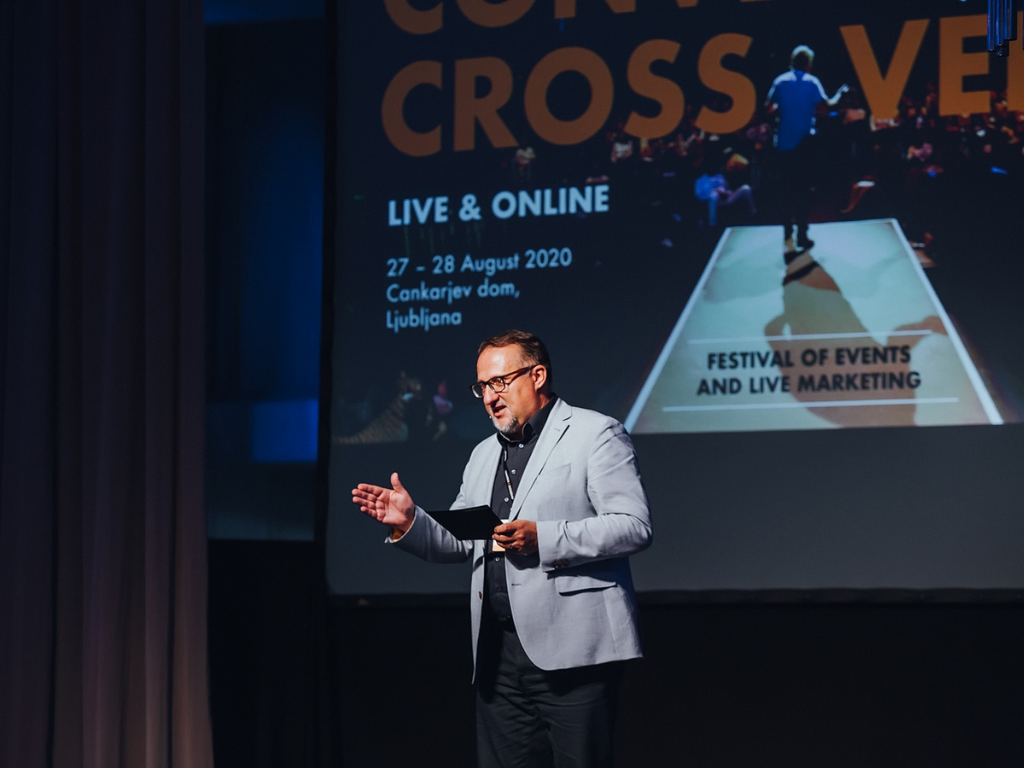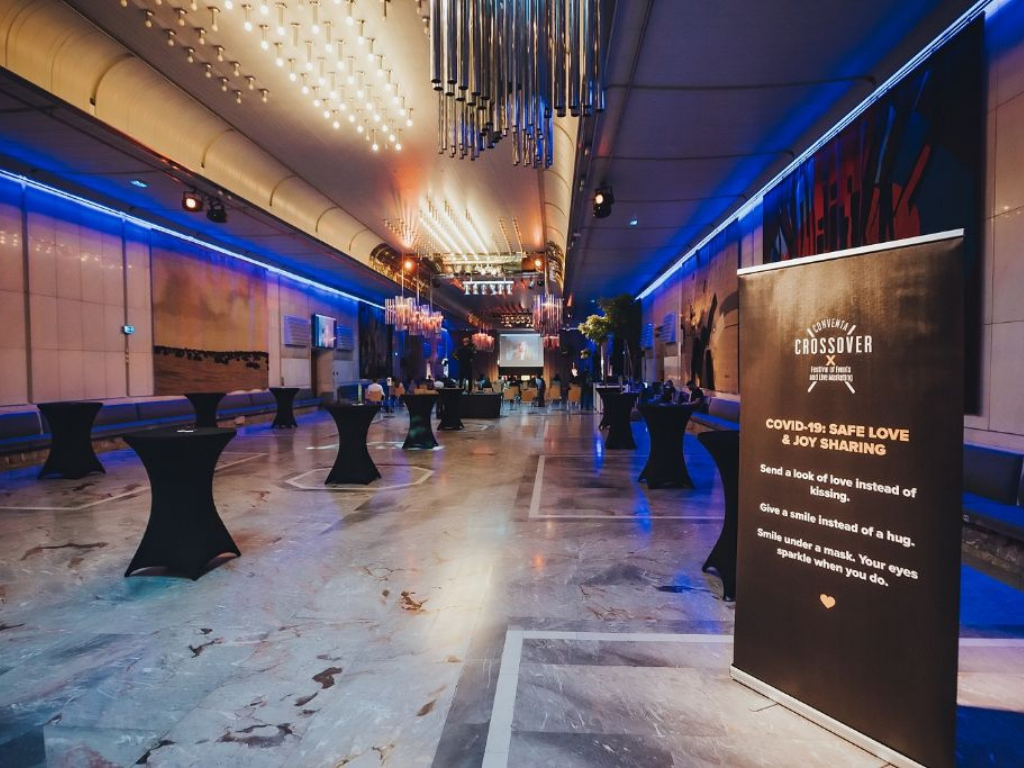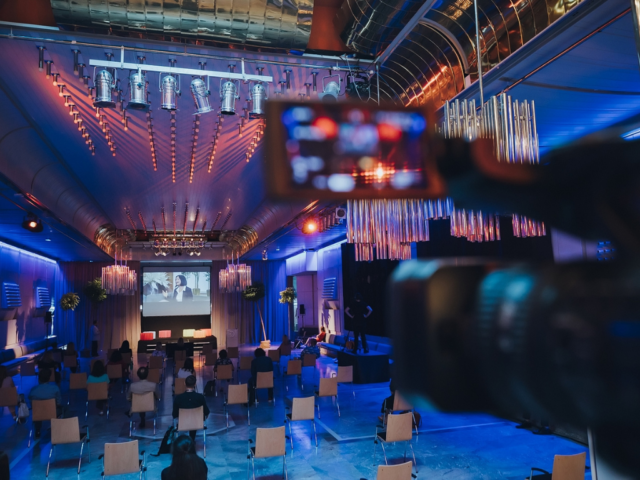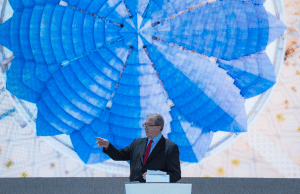THE DIGITAL EVENT SECTOR IS HERE TO STAY
Regardless of our outlook on the meetings industry, we can no longer disregard the so-called digital event sector (some refer to it as virtual). In 2020, there have been many investments made in this sector. To illustrate, I want to highlight some investments of the past year: Hopin 165 mil. $, Bizzabo 138 mil. $ and Streamyard 250 mil. $. Of course, the most recognisable growth indicator of the sector is the rise of the ZOOM stock. Although the stock has slightly stagnated at the end of the year, its value is still very high and settled around 383,40$. Where the development will halt, is hard to foresee. What we do know is that this segment of the meetings industry is here to stay. If we ignore this fact, then we may find ourselves struggling in development. When we asked our colleagues whether digital events will stay with us after the crisis, 40% of them answered affirmatively. It is likely that among them, there are several introverted participants of the younger generation, who prefer such events.
A phenomenon has occurred that psychiatrists refer to as ZOOM Fatigue. It is known that video calls cost us as much energy as live meetings. According to scientists, technology is interfering with our usual complicated human communication methods that have been configured over centuries to help humankind survive. The problem that seems impossible to solve is complete synchronisation, but many things can go wrong, even from a technical viewpoint. How this challenge will be dealt with in the future is hard to predict. Nevertheless, the meetings industry has lived through numerous crises (I have been through three major ones myself). After each crisis, the meetings industry grew stronger.

IS ORGANISING DIGITAL EVENTS REALLY "EASY PEASY"?
Above all, I am most worried about the immense lightness with which the IT sectors offer us “heaven on earth”. If we believe their marketing promises, then organising digital events is “easy peasy”, and the profits are greater and faster than pyramid schemes. Heaven on earth, which can solve any problem an event organiser can imagine for just 10K. It is remarkable what finds its way into my inbox on a daily basis.
Whenever I talk to colleagues, who have organised a complex digital version of events, the situation is anything but “easy peasy”. At the last digital event Conventa Trend Bar New Europe, we unanimously agreed that organising digital events is arduous and more complex compared to organising classic events. Consequently, the threshold for organisers increased significantly. If before the crisis, practically anyone could organise an event, now it takes significantly more knowledge, capital, technology and professionality. Thus, there are surprisingly few serious digital events.

Despite the intolerably easy promises made about the simplicity of organising digital events, we have to stay in touch with reality. The world of event organising has not been turned inside-out and has not become simplified, as many from the digital events sector like to portray. It has merely become more complex and requires a more professional approach from teams. The event world requires teams that unite and appoint new positions such as 3D designers, music arrangers, digital moderators etc.
What magical 123 platforms cannot offer are professional knowledgeable teams. Their know-how is more important than ever before.
1. Creating event content
While artificial intelligence is capable of creating content, it is far from creating added value that human intelligence can. We attend events chiefly due to exceptional content. Frankly, not even the most advanced computer cannot replace the human added value, and I believe this will remain so in the future.
2. Events are created with our hearts
To create great digital events, we require much emotional intelligence. In other words, if your events are generic and dull, your communication one-sided, then you have a recipe for disaster. Conversely, creating an authentic relationship, where both sides give and receive, is crucial. It requires a significant amount of emotional intelligence, which platforms cannot offer.
3. Event creativity
Not even the finest technology can replace the creativity of the best event organisers. It is creativity that separates man from machine, even though the machine is always faster and smarter when it comes to automatisation and optimisation. Creative surprises spice up events, and in my opinion, the future will be no different.
4. Digital management of the event community
Platforms can offer us help when recognising event participants’ behaviour. However, a ton of creativity and knowledge is needed to connect a community with our event. It is this field of digital marketing, where digital preachers offer much and give little. It goes without saying that artificial intelligence needs to be transferred to people.
5. Engagement
As event organisers, we need to be able to effectively connect with the participants, which is something artificial intelligence has not been able to do yet. Even if artificial intelligence ever succeeds in connecting with the audience, it will never be able to replace intuition, creativity, and the use of all senses that are unique for live events. Thus, we need good mediators between technology and event participants. The magic word is interactivity.
6. Production and postproduction
For creating a serious digital event, we need an excellent team. Such a team can quickly amount to ten and more professionals from different branches; from multimedia technicians, cameramen, sound engineers to lighting technicians. As long as we want to execute events professionally, this part of the story is necessary.

In the past ten months of digitalisation, another matter has become obvious. Only about 20 to 30% of magical platforms are actually easy to use and follow the KISS model. On the contrary, most solutions are complex and hard to get around. They can quickly scare participants, who decide to go elsewhere after a few minutes.
Now, I want to appeal to all digital events gurus to try and convince me that organising is in fact “easy peasy” and that I am plainly wrong or too old to understand the brave new world of digital events. I will be truly pleased if someone from the digital event sector will enlighten me. In the meantime, I will closely follow how many video conferencing systems stay with us.
IS ZOOM REALLY FREE?
Almost unanimously, this question would get the answer that it is free. Perhaps someone would add that it is free for up to 100 participants or only free for 40-minute long meetings. The freemium business model of Zoom has, therefore, been generally well-received.
In practice, though, you require several extensions and add-ons to make everything work well. For professional use, the best option is to choose the Zoom Video Webinar, which includes anything a professional might need.
Why is ZOOM’s commercial model so important? Primarily because practically every provider is copying their business model. In a way, it has become a benchmark of the meetings industry.














